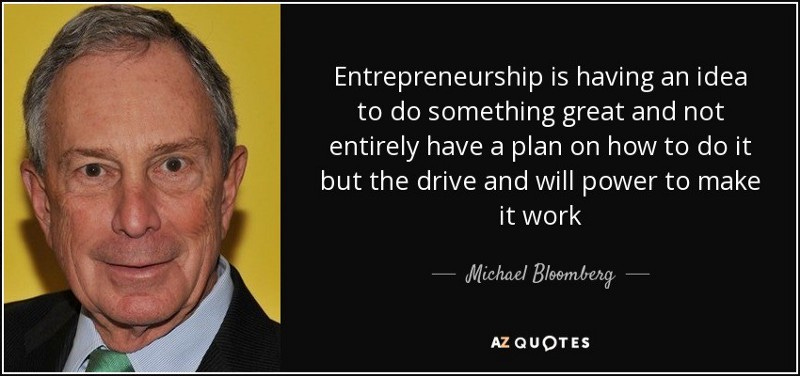Entrepreneurship Can’t Be Taught
Business skills can be taught, but entrepreneurial qualities like grit and risk tolerance are inborn.
So can entrepreneurship be taught? Most entrepreneurs and investors seem to think the answer is ‘no’. Most academicians and students think the answer is ‘yes’.
I sincerely believe that exceptional entrepreneurs have what it takes in them from the day they were born, and I think most psychologists will agree with me. We’re talking about the unicorns; the ones that make it to a respectable IPO. Why? Let me explain with a simple but intuitive analogy.
Entrepreneurs are born, not bred
How does one cultivate a great world class musician, say a pianist? First you gather all the young kids who can play the instrument. You then ask respectable piano teachers to evaluate who had the innate talent and aptitude to go far. And then you get these teachers to take them under their wings and put them through years of rigorous training and dedication to the craft.
You do not however, make playing the piano seem very cool and glamorous to attract general interest in all children, get a bunch of people who have never played the piano to evaluate them, and then choose a large number as apprentices and hope that eventually a few of them would achieve greatness.
The same could be said of any other achievements that require a lot of talent, determination and passion to succeed. I believe being a successful entrepreneur falls into such a category, having failed miserably in one attempt, achieved minor success in another, and met and talked with many who fell into both ends of the spectrum.
Encouraging entrepreneurial ‘spirit’
Some governments or academic institutions believe that encouraging entrepreneurial spirit is the key to creating more successful entrepreneurs. I believe that is a mistake. Getting more people to try does not increase the odds of getting successful startups .
The Oxford Dictionary defines ‘spirit’ as “the prevailing or typical quality, mood or attitude of a person, group or period of time”. By this very definition it implies that any ‘spirit’ is temporary in nature.
Rather than developing an overall sense of ‘entrepreneurial spirit’, it might be better to identify individuals with inherently strong entrepreneurial qualities that will last — passion, grit, resourcefulness, risk-taking aptitude — and giving them the encouragement and assistance they need to fully develop their potential over the long and obstacle laden process they will surely face.
It’s cool to do a startup
With big money and so much glamour propaganda injected into entrepreneurship these days, I have met many young founders doing startups because it is now ‘cooler’ and less boring than working in a big corporation. They also tend to choose popular themes such as Artificial Intelligence or Blockchain because it’s easier to get investors’ attention. They quote Jack Ma or Steve Jobs as role models and use popular lingo like solving “pain points” that venture capitalists love to hear in pitches.

Away from the ears of investors, these aspiring startup founders often talk about being smart and using “other people’s money to get rich” by pitching big ideas and wooing venture capital. However, without true passion and grit, when things get tough or money runs out, these fad chasing ‘entrepreneurs’ will probably fail and drop out.
When that happens, the best thing that could happen is they walk away with a sense of appreciation of what entrepreneurship really is and understand better if they are suited for it. If yes, they stand better odds of success the next time around. If not, they will return to a career as an employee with less of the ‘grass is greener on the other side’ temptation.
But by then, a lot of taxpayers’ money, private investors’ funds, and hard-earned savings from the founders, would have been wasted. Going back to the pianist analogy, while many children are forced (by their parents) to learn an instrument when they are young as a sort of healthy interest and all-rounded development, few actually go on to make a living out of music, much less become a world class musician. The same goes for entrepreneurship. You can lead many to try. But that is not the right way to create more who can succeed in it. Those who have no interest or aptitude will simply drop out when it gets too tough.
The converse is true. One may argue that my analogy is flawed because if you didn’t get many kids to try playing the piano in the first place, how do you gather enough to uncover the exceptional talents? To this I would say, for the ones who are innately passionate and drawn to music, even if their parents had no money to send them for lessons, they would find a way to somehow learn to play.
And so with due respect to all the business school professors and policy makers out there: to breed successful entrepreneurs, spend less on creating entrepreneurial spirit and interest in society, and do more to identify and groom individuals who exhibit entrepreneurial qualities.
PS: So what does one do if you have a great invention or idea, but don’t have the interest or innate talent to run a big company? Well, get a co-founder who does! In his book “How to Build a Billion Dollar App”, George Berkowski noted that between 2004–2014, at least 43 startups have become unicorns (valued at more than a billion). Of these, 35 companies had more than one founder. The average is three founders. So it is a myth that great startups owe their success to one single, visionary founder! Microsoft, Apple, Facebook and Twitter all had co-founders. The fact that some of the co-founders parted ways early is well, a different story for another article.







